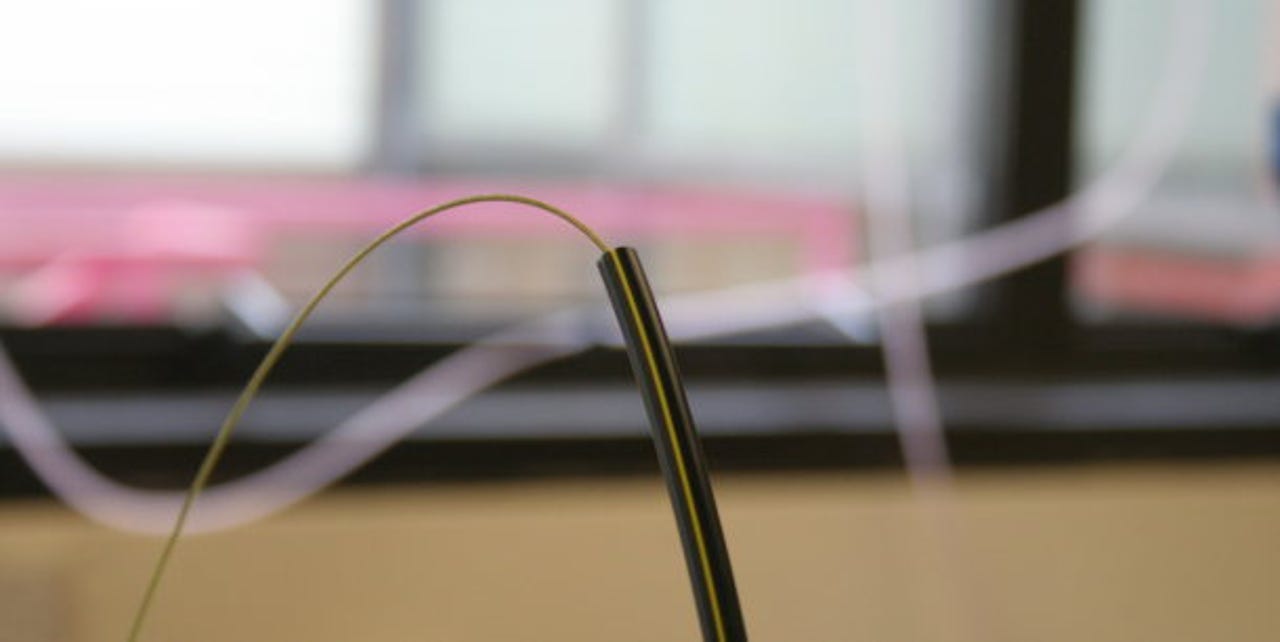BT FTTC broadband speeds to hit 80Mbps next year?

Speed boost on the cards for BT's fibre customers...

Fibre-to-the-cabinet broadband speeds are set to roughly double next year, says BTPhoto: Natasha Lomas/silicon.com
BT says it expects to double the speeds offered by its fibre-to-the-cabinet (FTTC) superfast broadband network next year.
The company is in the process of rolling out FTTC broadband as part of a £2.5bn fibre broadband network that will extend access to faster broadband speeds to two-thirds of the UK.
At present, FTTC offers download speeds of up to 40Mbps but BT believes it will be able to double this to up to 80Mbps in 2012. The upload speeds supported by the tech would also improve, with the current limit of up to 10Mbps "likely" to rise to up to 20Mbps, according to a BT spokesman.
Existing FTTC customers should expect a speed lift next year, according to BT. "Most customers within the existing footprint will get a higher speed," said the spokesman. "There will be a very small number of customers who have very long lines who won't benefit as the additional speed is generated by using higher frequencies and those frequencies do not work on long lines."
BT also reckons it could squeeze even higher speeds out of FTTC - suggesting download speeds could exceed 100Mbps in future.
The firm's announcement comes after Japanese company Fujitsu last month revealed plans to roll out a 1Gbps broadband network to five million UK homes. BT's network does not currently support 1Gbps broadband speeds. It said it will be testing a 1Gbps fibre-to-the-home (FTTH) service next year. Its current FTTH service supports download speeds of up to 100Mbps.
FTTC is BT's preferred technology for its next-generation broadband rollout, with about 75 per cent of the planned footprint to consist of FTTC versus 25 per cent of the faster, and more costly to install, FTTH technology.
While FTTC involves laying fibre-optic cable from the exchange to the street cabinet - with data then being carried into a customer's premises along the existing copper telephone lines - FTTH eliminates the bottleneck of copper as fibre cable is laid all the way inside a customer's premises.
So far, BT has spent £600m of its next-gen broadband pot and is putting 80,000 new premises within reach of fibre each week. BT said it expects to have fibre access for five million homes in the next few weeks and aims to ramp this up to 10 million by 2012.
Orders for BT Infinity, its fibre-based broadband service, are running at an average of about 5,000 per week, the company said. The total customer base for BT Infinity now stands at 144,000.
In separate news, research conducted by telecoms regulator Ofcom has suggested 4G, the next generation of mobile network technology, will be able to deliver more than 200 per cent of the capacity of existing 3G technologies using the same amount of spectrum. The capacity boost is down to 4G having higher rates of spectral efficiency.
"4G mobile technologies will be able to send more information than 3G, for a given amount of spectrum. This increased efficiency means that 4G networks will be able to support increased data rates and more users," said Dr Stephen Unger, chief technology officer at Ofcom, in a statement.
He noted that a user on a 4G mobile network will be able to download a video in about a third of the time it takes on a 3G network today - owing to rates of spectral efficiency that are more than three times higher.
It is expected that 4G spectral efficiency will increase to more than five times the efficiency of 3G by 2020, he added.